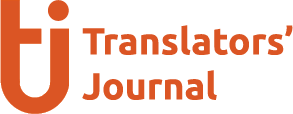
Translation is more of a calling than a job. Even with the bumpy financial reality, translators persist in their career because this is what they enjoy, and where they flourish.
However, a stable income can make it more enjoyable by providing a safety net to take risks, pursue passions, and plan for the future.
What is a Stable Income?
A stable income is a regular income that is not likely to change suddenly and is often received from the same source.
It is possible to secure a stable income and cover all of your expenses or a part of your expenses as a translator.
How much you earn can depend on several factors – whether you work part-time, full-time or how much demand in the market there is for your language pair.
How Can Translators Have a Stable Income?
Translation is not a profession that is likely to guarantee a fixed income by default. To earn a living as a translator you have to either take an in-house translator position or a freelance role.
If you work as an in-house employee that can pretty straightforward ensure you get a paycheck every month.
On the other hand, as a freelance translator, you need to wear more of an entrepreneurial role.
In this article, I will share 7 tips to have a steady income as a freelance translator.
Tip 1. Know Your Baseline
Knowing your expense baseline is crucial for you to achieve financial stability as a freelance translator. It means you know your expenses.
What are the fixed costs? Fixed costs are expenses that remain relatively constant regardless of your income level. Examples of fixed costs include rents, utility bills, subscriptions, etc.
What are your variable costs? Variable costs fluctuate depending on your workload and income. Examples of variable costs include taxes, office supplies, learning and development, etc.
Knowing your costs helps you set realistic income goals and manage your finances effectively.
Benefits of Knowing Your Expense Baseline:
- Improved Decision-Making: Knowing your baseline helps you make informed decisions about your finances, such as whether to take on a new project or invest in additional tools.
- Increased Earning Potential: With a clear understanding of your expenses, you can focus on increasing your income to achieve your financial goals.
- Reduced Stress: Knowing your financial situation can reduce anxiety and provide peace of mind.
How to Determine Your Expense Baseline:
- Track Your Expenses: For a few months, meticulously record all your expenses. You can also categorize them into fixed and variable costs.
- Analyze Your Spending: Review your expense records to identify areas where you can potentially cut costs or find more affordable alternatives.
- Calculate Your Monthly Average: Determine the average monthly cost for each category of expenses.
- Create a Budget: Develop a budget that allocates funds for both fixed and variable costs, ensuring that your income covers your expenses. remember to regularly review your budget and make adjustments as needed to accommodate changes in your income or expenses.
Tip 2. Keep Your Accounts Updated
Keeping your accounts updated is a crucial aspect of financial management for freelancers.
Regularly monitor your income and expenses to gain a clear understanding of your financial health.
By staying organized and up-to-date, you can make informed decisions about your finances, identify potential issues early on, and ensure timely tax payments.
Tip 3. Assess and Estimate Earning Potentials
Assessing and estimating your earning potential is a crucial step in freelancing. It involves evaluating factors such as the volume of work available, the potential client base, the level of competition, and the average pricing for your services.
By gaining a realistic understanding of these elements, you can make informed decisions about how much time and effort to dedicate to your freelance endeavors.
For instance, freelance translators often encounter variations in workload and payment rates depending on the language pair. By researching the demand for specific language combinations and the average rates charged by other translators, you can set realistic expectations for your earnings.
By accurately estimating your earning potential, you can set achievable financial goals, prioritize projects, and make strategic decisions about your freelance business.
It’s important to be realistic and avoid overestimation of your income, as this can lead to disappointment and financial difficulties.
Understanding your earning potential is crucial in determining whether you should pursue freelancing full-time or part-time.
If your estimated earnings align with your financial goals and lifestyle aspirations, you may opt for full-time freelancing.
However, if your projected income is lower than your desired earnings, you might consider a part-time approach, supplementing your income with another job or source.
Tip 4. Develop Your Unique Selling Proposition
Developing a unique selling proposition (USP) is a powerful strategy to increase your hourly rate as a freelancer.
As you gain experience, focus on specializing in specific areas of interest that align with your skills and knowledge.
As an expert in specific niche areas, you can offer higher-quality services, faster turnaround times, and a unique perspective that sets you apart from other freelancers.
By developing one or two specializations, you can position yourself as the go-to expert in your niche. This allows you to charge premium rates, as clients are willing to pay more for specialized expertise and exceptional quality.
Additionally, by focusing on areas that genuinely interest you, you’ll be more motivated and passionate about your work, leading to better results and increased client satisfaction.
Remember, embracing your unique qualities and building a strong personal brand will make you irreplaceable in the freelance market.
Even as AI technology advances, your unique insights, creativity, and ability to build strong client relationships will remain invaluable.
Tip 5. Diversify Your Income Streams
While freelance translation offers flexibility, building a stable income often requires strategic planning and consistent effort.
To supplement your active income, consider exploring passive income streams. These are income sources that require minimal ongoing effort to maintain.
Here are a few ideas:
- Create and Sell Digital Products: Develop and sell digital products like e-books, online courses, or language learning tools. Once created, these products can generate income continuously with minimal ongoing effort.
- Translate Physical Books. Translating and self-publishing books can be a rewarding endeavor for translators.
- Start a Blog that interests you. Choose a topic that you either know a lot about or you have practical experiences. Choose a topic that you can write about regularly without doing a lot of research.
- Explore Additional Services: Offer related services like copywriting, transcreation, interpretation, etc.
- Teach Language or Translation Skills: Share your knowledge by tutoring or offering online courses.
- Collaborate with Other Professionals: Team up with other freelance translators, graphic designers, web developers, SEO experts, digital marketers to provide complete language solutions for websites, marketing materials, and other digital content.



